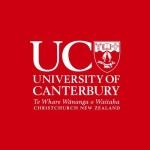UC education specialists helping schools with growth in e-learning
Two University of Canterbury (UC) education specialists are this year researching in uncharted territory to see how they can improve New Zealand students’ e-learning achievements as new ultra-fast broadband sweeps the country.
UC’s Dr Julie Mackey and Professor Niki Davis have received a $130,000 research grant to see how school principals can effectively lead e-learning to improve student success.
They will be working on the project with Wellington schools Tawa Intermediate School, Churton Park School and Newlands Intermediate School; Christchurch’s Belfast School; and Horowhenua’s Levin Intermediate School to discover leadership strategies that enable their students to significantly benefit from e-learning.
``This project is timely given the increasing investment in ultra-fast broadband for schools and the growing interest in how these technologies can be employed to enhance learning for diverse groups of students,’’ Professor Davis said today.
UC’s College of Education e-Learning Lab, directed by Professor Davis, has an international reputation for work in e-learning, blended learning and teacher education.
Schools will re-open next week and a number will have fast broadband to help students. By 2016 97.7 per cent of New Zealand schools and 99.9 per cent of students will be able to use the ultra-fast broadband to help them learn more effectively.
``We know that providing or focusing on technology alone will not change learning practices or outcomes. A recent New Zealand report has cautioned new technologies and improved internet access will only be successful with transformed learning.
``However, school leaders face many challenges as they seek to use 21st century technologies and there is often a distinct lack of preparation to equip school leaders to systematically implement digital technologies within school contexts.
``A recent evaluation of fully networked schools suggests that educationally powerful connections between home and school will require a paradigm shift in the way many view the relationship between home and school. There is real potential for schools to make more effective use of networking beyond the school.
``A few schools, including Tawa Intermediate School, have the culture and capacity to use digital technologies and e-learning and can capitalise on the opportunity to work collaboratively and interact outside of their classrooms, so we are delighted to be collaborating with Principal Carolyn Stuart in this project to discover key strategies that transfer effectively,” Professor Davis said.
